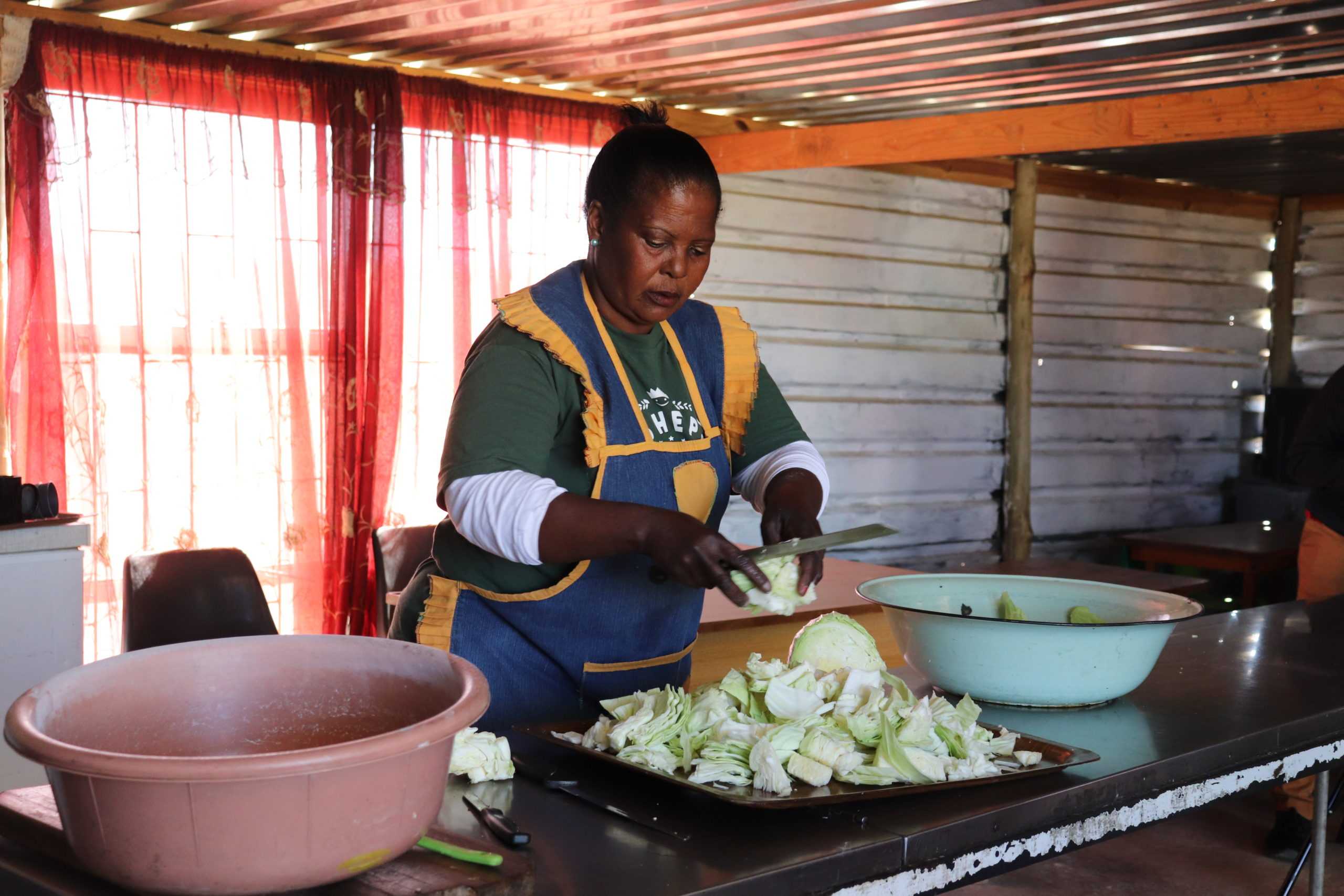Mautse, South Africa — Tshepo is the Sesotho word for hope, which is why Thabisang Kantini finds the name Tshepo Generation Soup Kitchen so fitting for the organization’s mission: to “bring hope to the hopeless.”
“It helps those vulnerable children. It changes their lives,” said Kantini, who serves as senior pastor for Global Gate Community Church in the township of Mautse, located in the Free State province.
Created by the apartheid government under the Group Areas Act of 1950 when Black and brown South Africans were forcibly removed from areas reserved for white South Africans, Mautse was designated as Black. It sits across a highway from Rosendal, a now vibrant arts community that was designated as white under apartheid.
For many of the youth Tshepo serves, Sesotho is the only language they speak. Sesotho is one of 11 official languages in South Africa and the primary language spoken in the Kingdom of Lesotho, whose border is about 40 km (25 miles) from Mautse.
Kantini and members of his church, along with a host of volunteers, help to run Tshepo, a nonprofit organization whose mission since its founding in 2013 is to help those in Mautse experiencing food insecurity and poverty. As in many other apartheid-era townships, those living in Mautse continue to experience high rates of poverty, unemployment and little economic growth.

Made up of two colorfully painted corrugated tin buildings, Global Gate Community Church sits along a dirt road at the edge of the township. The largest building is used for church services and other activities. The smaller building is used as a kitchen for both the Tshepo children and those who pay to attend a créche, or nursery school, also on the property.
On Mondays, Wednesdays and Fridays, Tshepo provides meals for just under 100 children after their day at school. The children also participate in extracurricular activities, including painting, sports, crafts, reading and working with computers.
In order to identify children who are in need of the services of the organization the most, organizers turn to Mautse Primary School, Kantini said.
Tshepo operates fully on donations, which are down because of the pandemic, Kantini said. While outside organizations and individuals, including Rosendal community members and local farmers, continue to donate to Tshepo, attendees of the Global Gate Community Church have not been able to offer as much support as they once did.
“It [the pandemic] actually affected the attendance of our members,” Kantini said. “And financially, it affected us because the money that we used to have the past five years, like tithes and offerings, we no longer get because of the lack of the attendance from the members.”
Tshepo serves 93 children three days a week, according to Elizabeth Lesesa, Tshepo’s chef, who began working for Tshepo in 2014.
Lesesa said she loves her work because of her passion and love for the children.
“It’s important for the kids because some of them, [they’ve] got nothing in their houses and the parents are not working. And other kids, they got no parents,” said Lesesa, while taking a break from cutting heads of cabbage. “That’s why I’m here for them.”
Lesesa said her favorite thing to cook for the kids is milk and pap, a South African porridge made from maize meal that can be eaten at any time of day. Some of the food Lesesa serves, like the cabbage, also comes from a garden on site at Tshepo.

Volunteers come to Tshepo to play with the children and facilitate different activities throughout the afternoon before a meal is served.
“We usually start with dancing and being active. I like to see how they coordinate things, if they have that coordination, or just their motor skills, how that is, because most of the time you find that kids don’t know how to coordinate things. So I like for them to use their hands,” said Mafusi Molefi, a volunteer at Tshepo. “And then when they get tired, or if they start to get restless, we go outside and do whatever it is they would like to do.”
Molefi spent a sunny but blustery Monday afternoon in mid-June at Tshepo dancing the Cha Cha Slide with children, jumping rope and playing soccer. Molefi, who is also a teacher at a tutoring center in Rosendal, said she particularly enjoys spending time at Tshepo getting lost in fun activities with the kids.
“In the school system, there are rules that they can only do this. Here they are kids again. They get to just have fun just being children again,” Molefi said. “They do all this other creativity and that too is part of learning. It’s just that most of the time it’s not included in our curriculum. So for an organization like this one, it’s a big thing where kids can just come and tap into their creativity.”
Samantha Yeowart said she has been consistently volunteering at Tshepo since the organization restarted operations after covid lockdown restrictions.

Yeowart, who works as a management consultant when she is not volunteering, said while Tshepo is important for addressing the critical need to feed children, the organization also offers support in other areas of the childrens’ lives.
“They’re not just a hungry mouth in a queue, but they’re an individual who does art, kicks a ball, falls off a slide, gets a hug,” Yeowart said.
Kantini said if there is one thing he wants people to know about Tshepo, it is how deeply the organization as a whole cares for children in Mautse.
“I always want to see people being helped, the people in need,” Kantini said. “I have a love for this community, and it’s my heart to see people’s lives being changed.”
Allie Miller ‘24 contributed to this story.















































